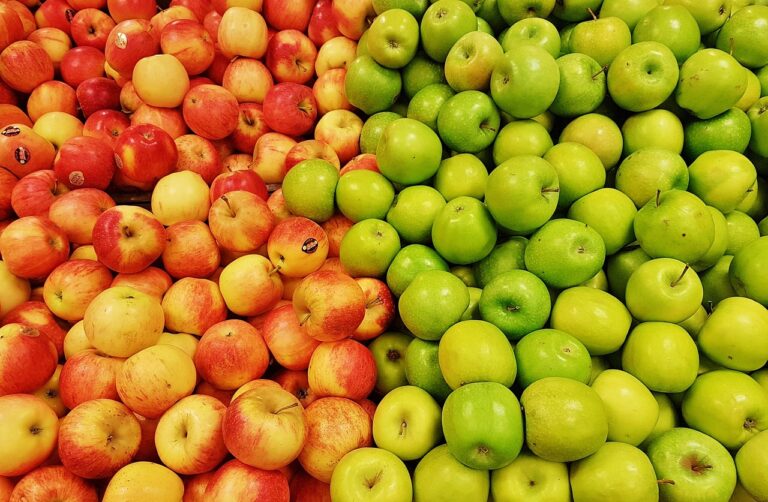The Impact of Agroecology on Enhancing Crop Resilience to Climate Extremes: 11xplay reddy login, Reddy anna, Golden 777 login
11xplay reddy login, reddy anna, golden 777 login: Agroecology is a holistic approach to farming that focuses on building sustainable and resilient food systems. By incorporating principles of ecology into agricultural practices, agroecology aims to enhance crop resilience to climate extremes. In recent years, the impact of climate change on agriculture has become increasingly evident, with extreme weather events such as droughts, floods, and heatwaves posing significant challenges to food production. In this article, we will explore how agroecology can help farmers adapt to these challenges and improve the resilience of their crops.
1. Understanding Agroecology
Agroecology is not just a set of practices, but a philosophy that emphasizes the importance of working with nature rather than against it. By mimicking natural ecosystems, agroecological systems can increase biodiversity, improve soil health, and reduce reliance on external inputs such as chemical fertilizers and pesticides. This approach is based on the idea that healthy ecosystems are more resilient to external shocks, making them better able to withstand climate extremes.
2. Building Soil Health
One of the key principles of agroecology is promoting soil health. Healthy soils are more resistant to erosion, more efficient at storing water, and better at cycling nutrients. By using cover crops, crop rotations, and organic amendments, farmers can build soil organic matter and improve soil structure. This not only benefits the health of the soil but also enhances its ability to withstand droughts and floods.
3. Diversifying Crop Systems
Monoculture farming, where a single crop is grown over large areas, is highly vulnerable to pests, diseases, and climate extremes. Agroecology promotes diversifying crop systems by planting a variety of crops together. This not only increases biodiversity but also provides insurance against the failure of a single crop. By planting a mix of annuals, perennials, and cover crops, farmers can create a more resilient and productive agroecosystem.
4. Managing Water Resources
Water scarcity is a growing concern for farmers around the world, as climate change is expected to disrupt rainfall patterns and increase the frequency of droughts. Agroecology offers solutions for managing water resources more effectively, such as rainwater harvesting, agroforestry, and conservation agriculture. By capturing and storing water on-farm, farmers can reduce their dependence on irrigation and cope better with dry spells.
5. Enhancing Biological Pest Control
Pests and diseases are major threats to crop production, especially in a changing climate. Agroecology emphasizes the use of natural enemies, such as beneficial insects and birds, to control pest populations. By promoting biodiversity on farms, farmers can create habitats for these natural enemies and reduce the need for chemical pesticides. This not only improves the health of the agroecosystem but also reduces the risk of pesticide resistance.
6. Strengthening Resilience to Climate Extremes
Climate extremes, such as heatwaves, storms, and floods, can have devastating effects on crop yields. Agroecology offers a way to enhance the resilience of crops to these extremes by promoting biodiversity, building soil health, and improving water management. By adopting agroecological practices, farmers can create more resilient and sustainable food systems that are better able to withstand the impacts of climate change.
FAQs
Q: How can farmers transition to agroecological practices?
A: Transitioning to agroecology requires a shift in mindset and a willingness to experiment with new techniques. Farmers can start by incorporating principles of agroecology into their existing practices, such as diversifying crops, building soil health, and managing water resources more effectively. By gradually adopting these practices, farmers can transition to a more sustainable and resilient farming system.
Q: Are there any downsides to agroecology?
A: While agroecology offers many benefits, it is not without challenges. Transitioning to agroecological practices can be labor-intensive and require changes in farming practices. Additionally, agroecological systems may not always produce as high yields as conventional farming methods in the short term. However, the long-term benefits of agroecology in terms of sustainability, resilience, and environmental health far outweigh these challenges.
In conclusion, agroecology has the potential to enhance crop resilience to climate extremes and build more sustainable food systems. By adopting principles of agroecology, farmers can improve soil health, diversify crop systems, manage water resources more effectively, enhance biological pest control, and strengthen resilience to climate change. While transitioning to agroecological practices may require a shift in mindset and changes in farming practices, the long-term benefits are well worth the effort. By working with nature rather than against it, farmers can create more resilient and sustainable food systems that are better able to withstand the impacts of climate change.







